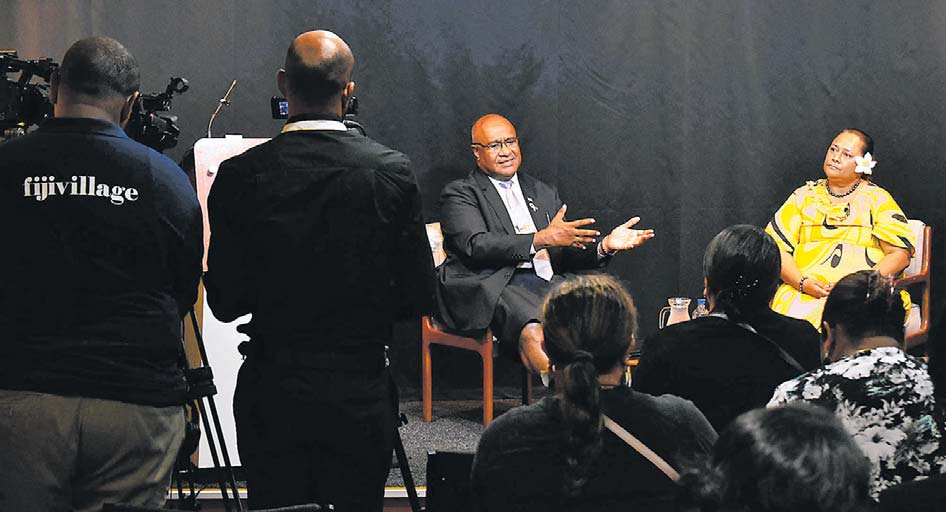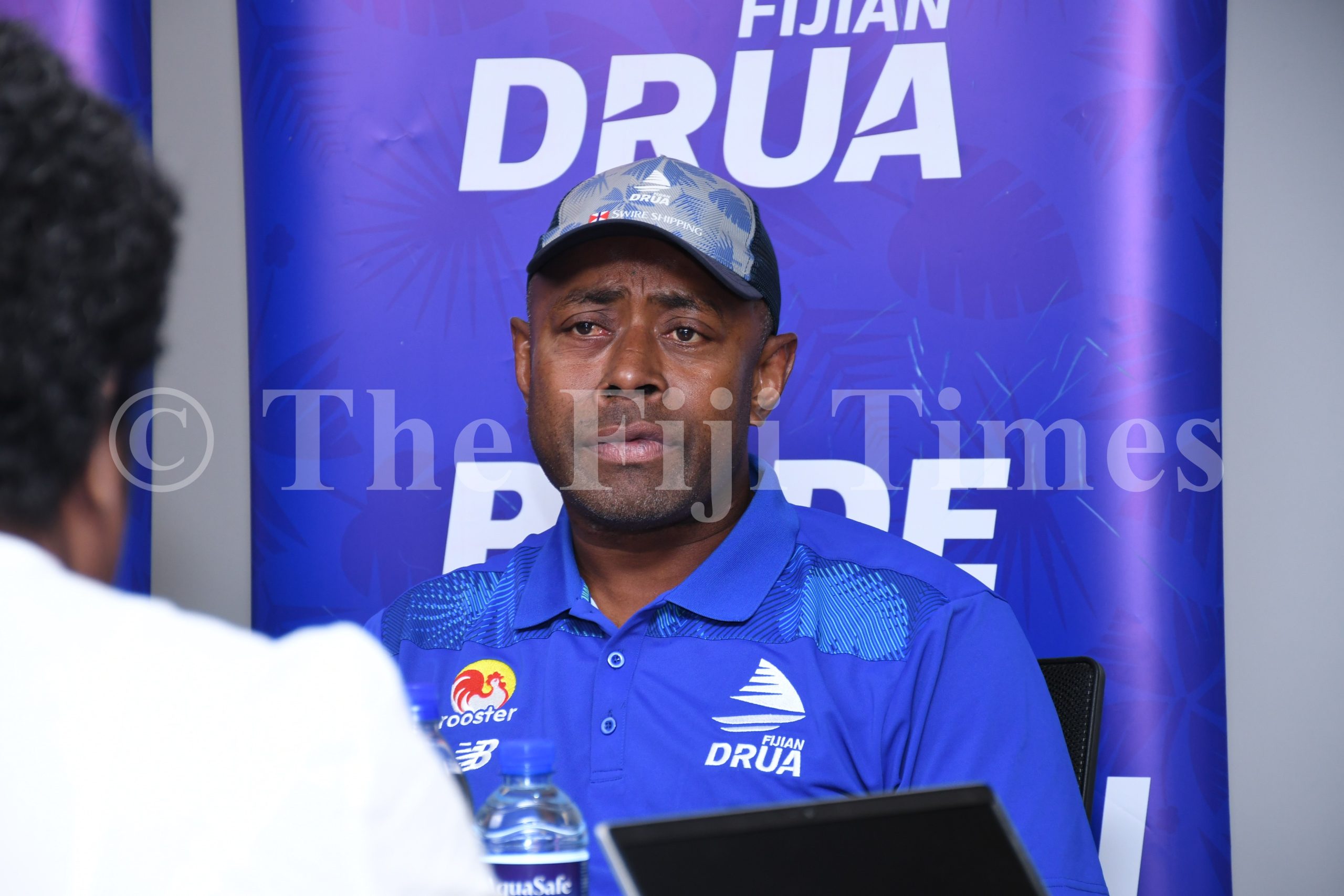One upon a time, not too long ago, media freedom and freedom of expression went on a downward spiral.
What ensued was a time of uncertainty in Fiji.
Political changes ushered in the Media Industry Development Act that was designed to muzzle the mainstream media, silence the voice of society and drown the conscience of our people.
We all know how that impacted our democracy, governance systems, public institutions, corruption levels and the work of journalists.
Who could ever forget how the political setting of the past decade constructed a brand of politics that was laced with suspicion and antagonism.
Who could forget how government missed many opportunities to reach the middle ground and genuinely work with the media (and not just a few favoured outlets).
By taking a hard line and curtailing the media and people’s freedoms, government not only silenced ideas and voices but also disturbed social peace and public goodwill.
Luckily, the national election of December 2022 and the emergence of the People’s Coalition Government brought back hope that had been extinguished for over a decade and gave back rights and freedoms that had eluded us.
And as a follow up to the repeal of MIDA on the floors of Parliament on April 6, this week our democracy got back another missing piece of the jigsaw, with the launch of the Fiji Media Council.
A lot of behind-the-scenes negotiations and inclusive dialogue went into resurrecting the council, which has officially sent MIDA to the ash heap of history and placed the local media fraternity closer toward having a more dynamic, accountable and independent media industry.
We are told the FMC is made up of a diverse group of individuals committed to upholding the highest standards of journalism, defending media freedom and facilitating public debate and discourse.
Despite, the recent political murmurings over the recent Cabinet reshuffle and the hot soup that government falls into every now and then, this week’s FMC launch shows that government still possesses the ability to listen to the people and believes in the importance of having a free, independent and vibrant media landscape.
What we must realise is, changing laws through public consultation that is honest and fair, can be a time-consuming and expensive exercise, yet it ensures that law-making and policy development processes are transparent, accountable and inclusive.
Strengthening the media and providing journalists with a space to work freely and without fear indirectly gives ordinary people and every group in society the chance to actively and voluntarily take part in decision-making and national building.
This week, we learnt that government has put on hold the ministerial reassignments announced on October 13 to allow government to consider issues raised by the Fiji Law Society.
FLS president Wylie Clarke had said in a statement last week the society had informed Prime Minister Sitiveni Rabuka it could not support Minister for Lands Filimoni Vosarogo’s appointment as Attorney-General because he had pleaded guilty in a number of disciplinary proceedings before the Independent Legal Services Commission.
Past issues may highlight the weakness in the leadership we have or the vulnerability of the three-party coalition but what is reassuring is that fact that those who hold political leadership positions show signs that they are willing to consider opposing views.
Research has shown that involving citizens and civil society in the decision-making and democratic processes and tapping into their reservoir of knowledge, skills and experiences has far-reaching advantages.
A strong leadership will therefore demonstrate the willingness to listen to feedback, share concerns and accept positive criticisms — even from those it may find disconcerting.
For it is when those holding leadership positions consistently fail to listen and consult society on matters that concern the public, that citizens feel disenfranchised and powerless.
Overtime this may turn to frustration and hopelessness.
A lot of times people don’t complaint.
This is because they possess goodwill and patience.
But there is a point when they will say: “We are done with this. Enough is enough!”
Why?
Because despite political affiliation, citizens generally want good leadership — one that genuinely listens and cares.
They want good service delivery, among many other things.
“The leader that doesn’t listen is emotionally unintelligent, selfish and arrogant,” author Jonathan Mills noted in his online article “When Leaders In Government Don’t Listen”.
“The leader that has a heart to listen, who cares and realises his/her servant role, however, can take on the emotional reality of the country and lead the country into a different future.”
Mill’s statements agree with the idea that a prudent (not perfect) government listens.
The escalating conflict in Gaza is a simple reminder to us all that things will go chaotic and peace will become unattainable when we don’t listen to each other and blatantly disregard consultation.
Back on the issue of FMC, this week’s media development shows that government wants to engage and work with the media despite knowing that the two will get on each other’s nerves from time to time.
That the way democracy works.
Period.
“The establishment of the media council represents a significant milestone in our ongoing efforts to create a vibrant and responsible media industry,” Deputy Prime Minister and Minister for Trade, Manoa Kamikamica said during the FMC launch.
“We are confident that the council, with its diverse membership and clear mandate, will play a pivotal role in shaping the future of our media
landscape,” he said.
Government’s kind gesture does not mean that the media should rest on its laurels and dance to the tune of politicians’ music.
That would be harmful to the health of our democracy and detrimental to the lives of all Fijians.
If one thing, this week’s launch means that the media and journalists now have the chance to grow professionally and we owe it to every citizen of this country, especially those left behind, to uphold democracy, defend freedom and continue to hold our leaders accountable.
Government and the media work differently and often act against each other.
That’s the way they were designed to function.
But differences aside, it is for the unity and survival of our people and the prosperity of our nation, that we must meet at the middle ground and give each other space to forge forward and carry out our democratic roles and responsibilities.
Until we meet on this same page same time next week, stay blessed, stay healthy and stay safe!






